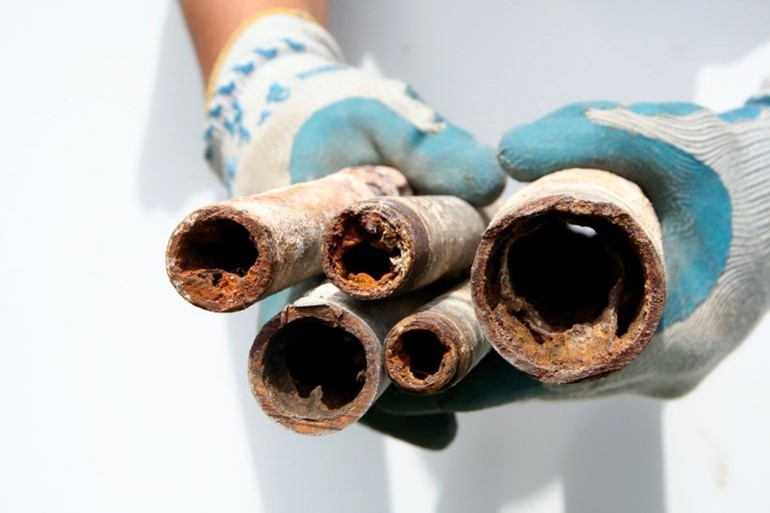Have you noticed a buildup of white scale on your shower head or a chalky residue on your glassware? Does your soap in the shower barely lather, leaving your skin dry and your hair limp? Do you ever have the feeling that your clothes aren’t totally clean?
If so, you may be experiencing a serious hard water problem which definitely needs immediate attention. The good news is that you are not alone!
What is hard water?
We all know that due to gravity, water is always on the move. In rivers, it can carve canyons and create valleys. When groundwater passes through rocks, it scraps off some minerals like calcium and magnesium. The minerals dissolve and wash into your groundwater supply. The higher the mineral content, the harder the water. Simply put, hard water is water with a high mineral content. While hard water is not necessarily a health concern, it sure poses a serious threat to your appliances and faucets.
How do I know my water is hard?
It’s not rocket science! It is very easy to tell whether or not your water is hard. For example, soap is less effective in hard water. Instead of completely dissolving, some soap manages to combine with the mineral deposits in hard water, requiring you to use a lot more soap to clean than necessary. Undissolved soap may still cling to your skin or hair after a shower, leaving it dry and dull.
Hard water minerals can also leave scale deposits. This chalky, plaster-like buildup can be found on faucets, appliances, sinks, and bathtubs. At first, the impact on your plumbing may be less obvious. Mineral deposits in pipes can reduce water flow and raise water bills. Scale build-up accelerates as the flow is restricted. Obstructions can cause damage to pipes and clog appliances, resulting in inefficiency and even costly repairs or replacements.
Effects of hard water
Hard water creates mineral buildup in water heaters. When calcium and magnesium are heated, they form a rock-like scale. This puts a burden on the water heater, causing it to expend more energy to maintain hot temperatures or, in the worst-case scenario, causing the unit to fail completely. When hard water is used in dishwashers or washing machines, it creates lime scale in the elements and some irreversible etching on your kitchenware. With hard water, all appliances that use or process water, such as ice makers and coffeemakers, will eventually perform less efficiently. Mineral build-up shortens the life of equipment, which is a major cause of service calls and replacements.

So what’s the solution?
At EcoVision, we have two main alternatives for dealing with hard water, which are water softeners and water conditioners. Salt-based water softeners remove minerals from the water, whereas salt-free water conditioners keep minerals from adhering to your pipes and appliances.
Our next Issue discusses Water Softeners and Conditioners in detail. You will learn more about how we can help you get rid of your hard water forever!
Your Hard Water Guide
| Classification | Hardness in mg CaCO3/L | Hardness in gpg | Hardness in ppm |
| Soft | 0-60 | 0-3.50 | 0-60 |
| Moderately Hard | 61-120 | 3.56-7.01 | 61-120 |
| Hard | 121-180 | 7.06-10.51 | 121-180 |
| Very Hard | ≥181 | ≥10.57 | ≥181 |

